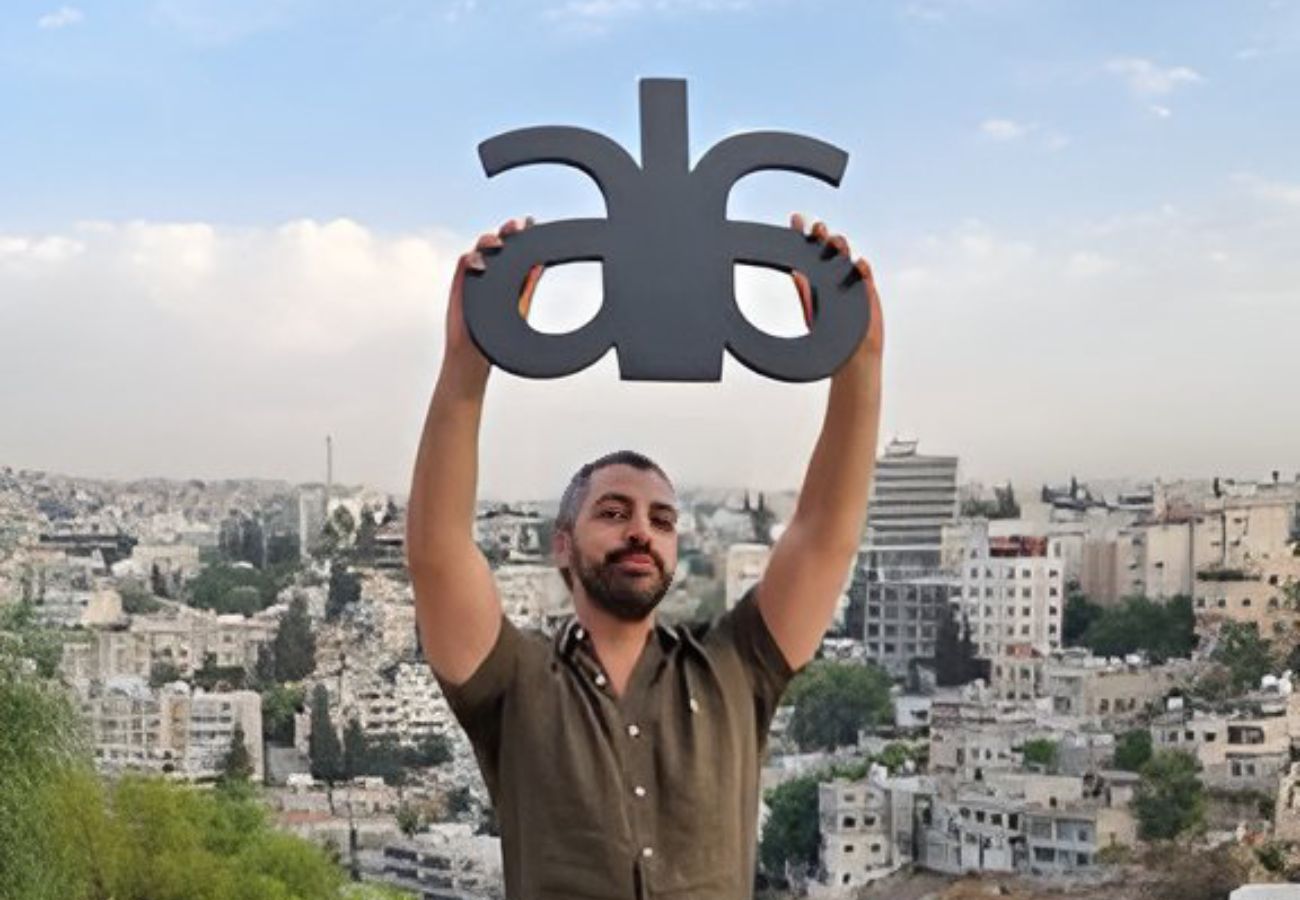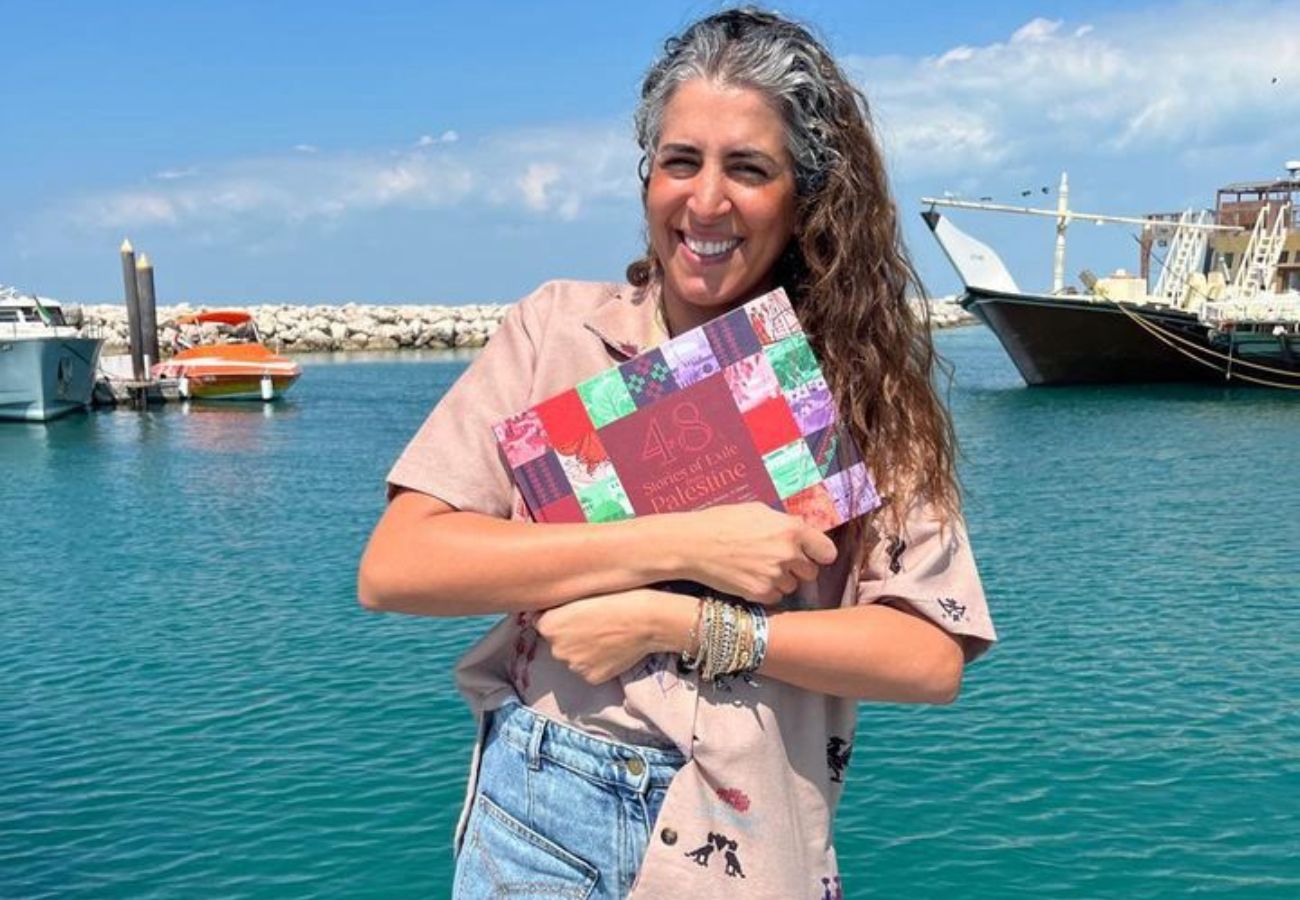
Discover “48 Stories of Exile from Palestine” by Deema Al-Alami
Throughout history there exist stories that transcend time, echoing the resilience, struggles, and triumphs of a people. Deema Al-Alami collected some of those accounts through her “48 Stories of Exile from Palestine.” This community project calls for you to embark on a profound exploration of Palestinian narratives, offering a glimpse into the hearts and minds of those who faced exile and displacement. Through our candid conversation, discover the inspiration, challenges, and aspirations that fueled this transformative project. Join CIIN as we honor the resilience of the Palestinian people and the truth of their existence.
Can you share the inspiration behind “48 Stories of Exile from Palestine?” What motivated you to embark on this project?
Witnessing the recent atrocities and realizing the urgent need for the world to hear authentic narratives from Palestine, combined with my experience as an author, I decided to invest my time and resources to use storytelling as a powerful tool to shed light on the truth. So, the inspiration behind “48 Stories of Exile from Palestine” originates from a profound desire to humanize the Palestinian experience beyond the statistics and headlines that continue to be shared in mainstream media. Palestinians are often portrayed as mere numbers, devoid of individual stories, which is both misleading and unjust. Motivated by this realization, I felt compelled to initiate a project that amplifies the voices of Palestinians, reclaiming their narratives, and honoring the resilience of those who endured exile. This project is not merely about recounting past injustices; it is a call to action, urging readers to confront the human cost of occupation and stand in solidarity with the Palestinian cause.
Could you describe the process of collecting these stories? How did you reach out to the community, and what was the response like?
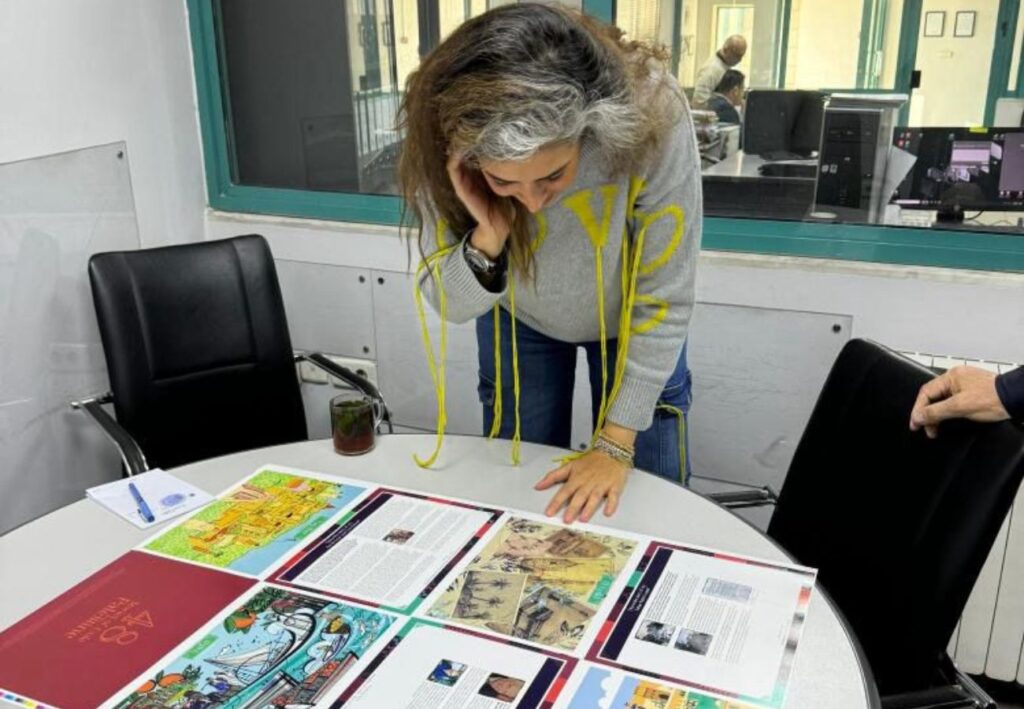
The process of gathering stories was via my Instagram account, where I explained the project’s purpose and invited the online community to share their personal narratives of exile and displacement. The response was overwhelming, with many individuals eager to contribute, recognizing the significance of preserving their family histories.
My co-producer and I sifted through submissions, ensuring that we maintained the personal voices and writing styles of the contributors while also incorporating essential details across all the stories. Collaborating with five editors, we conducted interviews, reviewed written submissions, and listened to a diverse range of voices sharing deeply personal experiences of Palestinian exile. This made the process emotionally challenging. Each story resonated deeply with me, as my paternal grandparents were exiled from Palestine too. However, this emotional investment fueled my determination to reclaim Palestinian narratives from erasure and marginalization.
The complexity of the process lies in our commitment to inclusivity, representing various regions, generations, religions, and experiences within the Palestinian diaspora. We meticulously verified names, events, and dates to uphold accuracy and authenticity to the extent possible.
Ultimately, the collaborative effort brought together individuals from diverse backgrounds and geographic locations (a co-producer from Syria, and editors from Bahrain, the US, and Jordan), enabling us to preserve the collective memory of Palestinians and honor their resilience through this book.
How do you believe this book will contribute to the broader conversation about exile and the Palestinian experience?
This book, written intentionally in English, serves as a vital contribution to the broader conversation about exile and the Palestinian experience by sharing authentic stories far from media jargon and restrictions. Through the personal stories shared within its pages, readers gain insight into the profound impact of displacement on individuals, families, and communities. By amplifying voices that have too often been silenced or marginalized, “48 Stories of Exile from Palestine” fosters empathy, understanding, and a deeper appreciation for the human cost of conflict and occupation.
Moreover, the book challenges prevailing narratives that portray Palestinians solely as victims or perpetrators of violence, highlighting the resilience, creativity, and diversity of Palestinian culture and identity. By centering the experiences of Palestinians from different regions, generations, and walks of life, the book offers a nuanced and multifaceted perspective that transcends simplistic stereotypes and binary portrayals.
In doing so, “48 Stories of Exile from Palestine” invites readers to engage critically with questions of justice, memory, and solidarity. It encourages dialogue and reflection on the universal themes of displacement, loss, and the search for belonging, resonating with audiences beyond the Palestinian community. Ultimately, by sharing these stories with the world, the book contributes to a more informed, compassionate, and inclusive understanding of the Palestinian experience, InshAllah.
In dealing with such personal and heartbreaking memories, how did you approach the interviews?
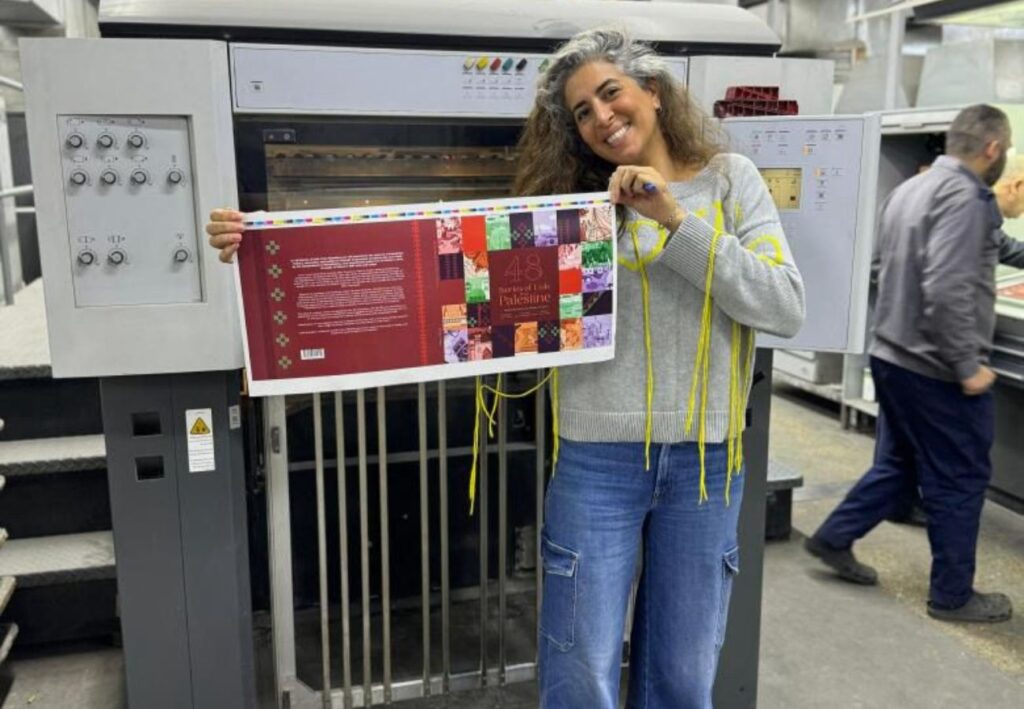
The beauty of this project lies in empowering over 48 individuals to take an active role in uncovering their family histories. We encouraged them to initiate the conversation and to be the ones asking questions. The feedback I received from contributing authors was overwhelming gratitude for the project, as it compelled them to delve deeper into their family histories, challenging assumptions and asking difficult questions. Each participant emerged from this project with a greater understanding, armed with factual information and a clearer picture of their family’s story—all contributing to the preservation of Palestinian narratives.
When it was our turn to enhance these stories, we approached them with immense compassion. Each parent and grandparent in these narratives became a part of our own family, evoking genuine emotional responses—we cried when they cried and laughed when they laughed.
What have been some of the most significant challenges you’ve faced while working on this project?
Coordinating over 60 contributors, including authors, illustrators, graphic designers, editors, and proofreaders was a huge task. With over 14 illustrations, 100+ pictures, and 30,000 words, ensuring smooth collaboration and meeting the ambitious four-month deadline required meticulous planning and a lot of dedication on my part. The project demanded my full attention around the clock for four consecutive months, making it a time-consuming project that tested my organizational skills and time management abilities but all worth the while.
Were there any stories or moments during the project that particularly moved or surprised you?
Every single story touched my heart deeply, leading me to shed tears I never knew I had. These tears weren’t solely of sadness but also of immense pride. What surprised me the most though was the recurring themes that emerged from these diverse narratives—themes of resilience, commitment to education, and the profound importance of family ties for Palestinians. Reading about these common themes throughout the stories reinforced the resilience and perseverance of the Palestinian people who were forcibly exiled from their homes.
How did you decide which stories to include in the book? Were there any criteria or guiding principles you followed?
To be honest, we worked with contributors who were responsive to our timeline and who were equally committed to this project. We required people to complete an online form, and we selected based on how much effort they put into completing it. In some cases, some contributors had to pull out their stories due to security reasons, and that’s when we started searching for stories from a specific city to replace them.
What impact do you hope “48 Stories of Exile from Palestine” will have on readers?
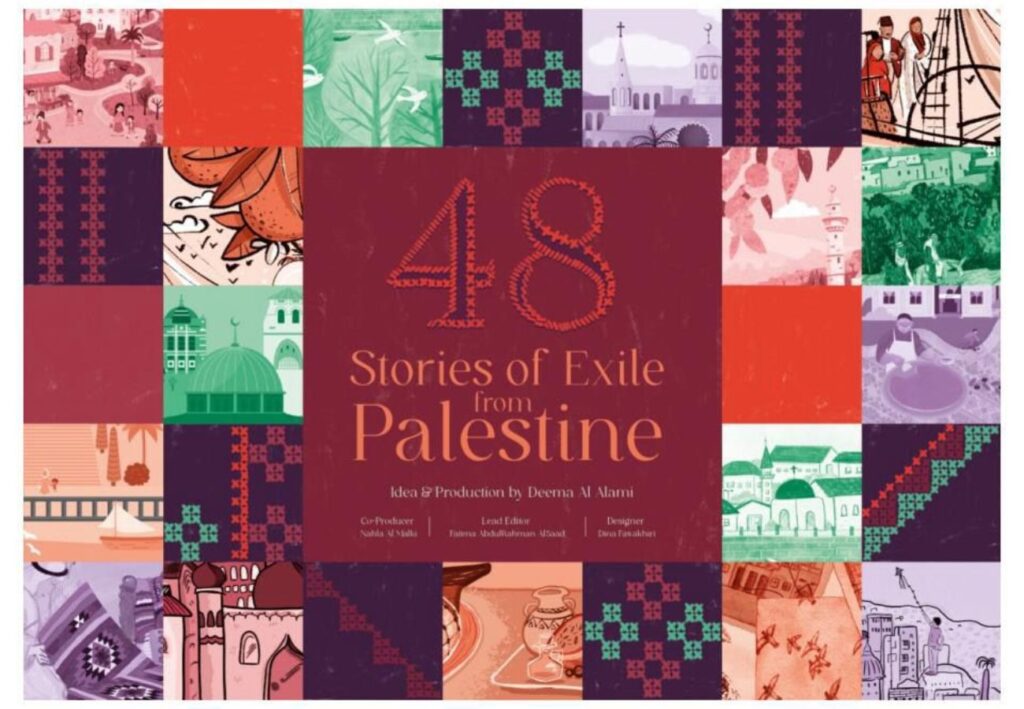
I hope “48 Stories of Exile from Palestine” will serve as a catalyst for empathy, understanding, and action. By humanizing the Palestinian experience and shedding light on the individual stories behind the headlines, I aspire to foster greater empathy and solidarity among readers. I hope the book will challenge preconceived notions and stereotypes, prompting readers to critically engage with the Palestinian narrative and the broader issues of injustice and displacement. Ultimately, I hope the stories within this book will inspire readers to stand in solidarity with the Palestinian people, advocate for their rights, and work towards a more just and equitable future for them.
Do you have any plans for future projects following this book? How do you see your advocacy and storytelling evolving?
Honestly, I hope I will never have to publish a similar book. While it’s crucial to shed light on hardships, occupation, and injustice, it’s not always an enjoyable endeavor. However, I do plan to translate the book into multiple languages and hopefully release an audio version to make it more accessible globally. Ultimately, I want to refocus on my “Mother to Author” program, where I empower Arab mothers to become published authors. This initiative allows me to channel my passion for storytelling into a more uplifting and empowering avenue, helping Arab voices find their place in the literary world.
Is there anything else you’d like to share about the journey of creating “48 Stories of Exile from Palestine” that we haven’t covered?
I want to emphasize that this book was truly a community project. While I initiated the idea and led the process, I cannot overstate the support, contributions, and unwavering dedication I received from my co-producer, the editors, the illustrators, and the graphic designers. With over 16 nationalities represented among those involved, it was incredible to witness the camaraderie and solidarity toward the Palestinian fight for freedom. This collective effort exemplifies the power of collaboration and underscores the importance of unity in amplifying marginalized voices and advocating for justice.





